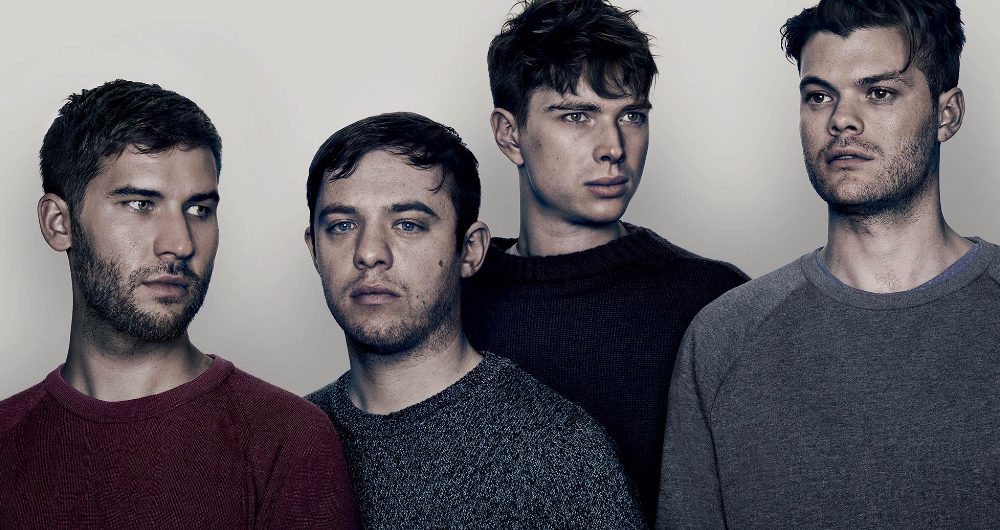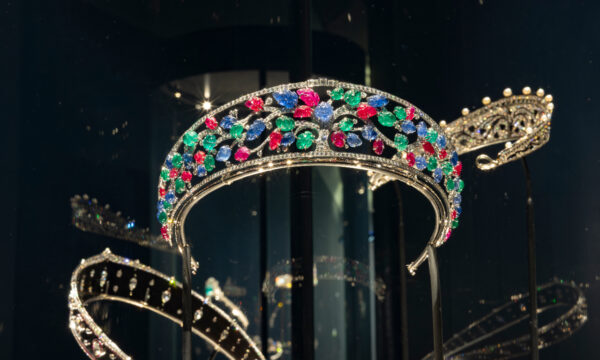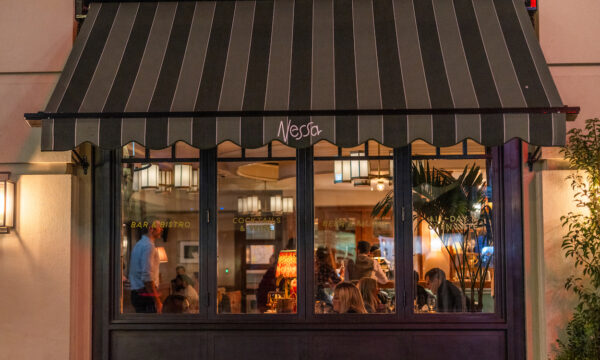“We’re quite comfortable in our bloody-mindedness these days”: An interview with Jeremy Pritchard and Michael Spearman of Everything Everything

As they approach the end of a recent tour that encompassed 130 shows in countless destinations, Everything Everything have every right to be exhausted. Instead, that infectious optimism that permeates through their music is just as strong as ever. With new album Get To Heaven almost a year old, and with a sold-out headline show at Somerset House under their belts, it seems like the sky is almost certainly the limit. We sat down with bassist Jeremy Pritchard and drummer Michael Spearman at this year’s LeeFest, which they headlined on the Thursday night, to discuss everything from their influences, political messages, and most importantly what’s next for the band.
Your most recent album Get To Heaven was a hit, what’s next for Everything Everything?
Jeremy Pritchard: Another one, basically. We’ve been writing a little bit while we’re still touring this album because the luxury of being able to interrelate the two is a rare one. We want to try and get a head start before we’re staring down the barrel of just writing new songs in our little room for the next three or four months at least. We’ve got a few things under our belt already and, in the meantime, we’ve got the last few shows on this album. Basically, we are here for a long weekend in the UK then we’ve got some stuff in America and Canada and then a few more bits in the UK and that’s it. It will have been, like, 130 shows on this album
Michael Spearman: That’s kind of our standard number on a record now. It’s a nice feeling at the moment because people did like the last record. People seemed to like all of our records really but it felt like a big moment for us and it gave us more confidence to do whatever we wanted and carry on from where we left off.
JP: It’s also very rare to have the current album as the most popular one that people want to hear. I think that we could very easily, and we shouldn’t take it badly if we do, find out that people still want to hear the bulk of Get To Heaven live on the next tour because it does take a while for these things to sink in. We always discovered that the previous album was the more popular live up until this particular moment right now, which I think is rare in any band’s career, where their current album is also their most popular.
Ms: Yeah, we played, like, all of it in our live shows. In our own tour we did every single track off it.
JP: Which was cool.
MS: Took a bit of rehearsing!
You’ve just played a sold-out show at Somerset House in London and now a headline slot at Leefest. Would you consider 2016 to be your breakthrough year?
JP: I think it probably is for some people but it’s hard for us to say because we’re in the eye of the storm. In a way, it’s felt like a natural progression from the last two albums, but I think if it had been different we would have noticed the difference. We’re lucky that it’s gone in the right direction.
MS: it’s been quite gradual, really, but feels like “yeah we’re going in the right direction”, and we just want to carry on in the same way really.
There’s been a lot of talk about the dark themes within the most recent album. How has that affected you as a band?
JP: It made it really difficult to write and very nerve-wracking, because we didn’t know how well people were going to take to this stuff, but we felt we couldn’t really be writing about anything else in 2014. Probably even more so now. The last two years have continued in the same vein at a global level. It was heavy weather, it was really difficult and we had this kind of crisis of confidence as well because we didn’t really know what we were and weren’t about. It was difficult.
MS: At the beginning of the process we had quite a lot of songs and we sort of got rid of them all
JP: A lot of them fell by the wayside. It took us a long time to warm ourselves up and write to a decent standard again, which is why we wanted to get ahead this time round.
Considering some of the themes behind the new record, do you now consider yourselves to be a political band?
JP: I think we always were, we just chose not to be so explicit about it.
MS: Bands don’t really talk about that stuff in songs because it’s very restrictive. It’s a very tricky line to walk. You don’t want to be a message-y polemical band because then it comes before the music.
JP: There are a lot of those bands.
MS: So, really, a lot of the things that Jon (Higgs) was saying on the last album were more a sense of confusion and not really knowing what was right and who to side with, because it’s not as simple as that. So he’s kind of playing roles a lot and jumping around and that’s just sort of how the world is nowadays. There are so many grey areas. There are some crazy things happening and it’s very hard to know how to take it and how to deal with it, really. The easiest way to deal with it is just to pretend these things don’t happen and carry on regardless, but you can’t really do that.
JP: There are a lot of people representing that mind-set in popular music and we felt we didn’t need to add to that. But even the sense of just information overload is something that we’ve always documented a little bit on all of our records. This one was just a bit more based around rolling news.
You’ve been called everything from “art rock eccentrics” to “indie pop giants”. It’s fair to say your sound is very unique, but how would you describe yourselves?
JP: Oh, I wouldn’t really. You know, you meet a friend of your auntie’s at a wedding or something and they’ll ask you “what does it sound like” and I speak in the most basic terms I can and I still feel like a real idiot. I have never been able to describe what we do and I actually don’t resent any of the labels that are cast our way. I think it’s kind of helpful. How would you describe it Michael?
MS: I think eccentric is probably in there somewhere. When people say art rock or art pop I think, whatever that means, it’s fairly representative of us. Jon’s a very visual person, when he’s writing lyrics and when he makes the videos as well, he’s thinking in terms of wider artistic concepts and I think some people think we’re sort of proggy or pretentious or whatever but fuck it, there’re not that many people doing that kind of thing. It comes naturally to us so we feel we can kind of push it a little bit.
JP: We’re quite comfortable in our bloody-mindedness these days. Get to Heaven really helped us because I felt we were testing the water on that album and we got away with it. Now we feel like there’s even more licence.
James Fisher
For more information about Everything Everything visit here.
Watch the video for Regret here:


























Facebook
Twitter
Instagram
YouTube
RSS